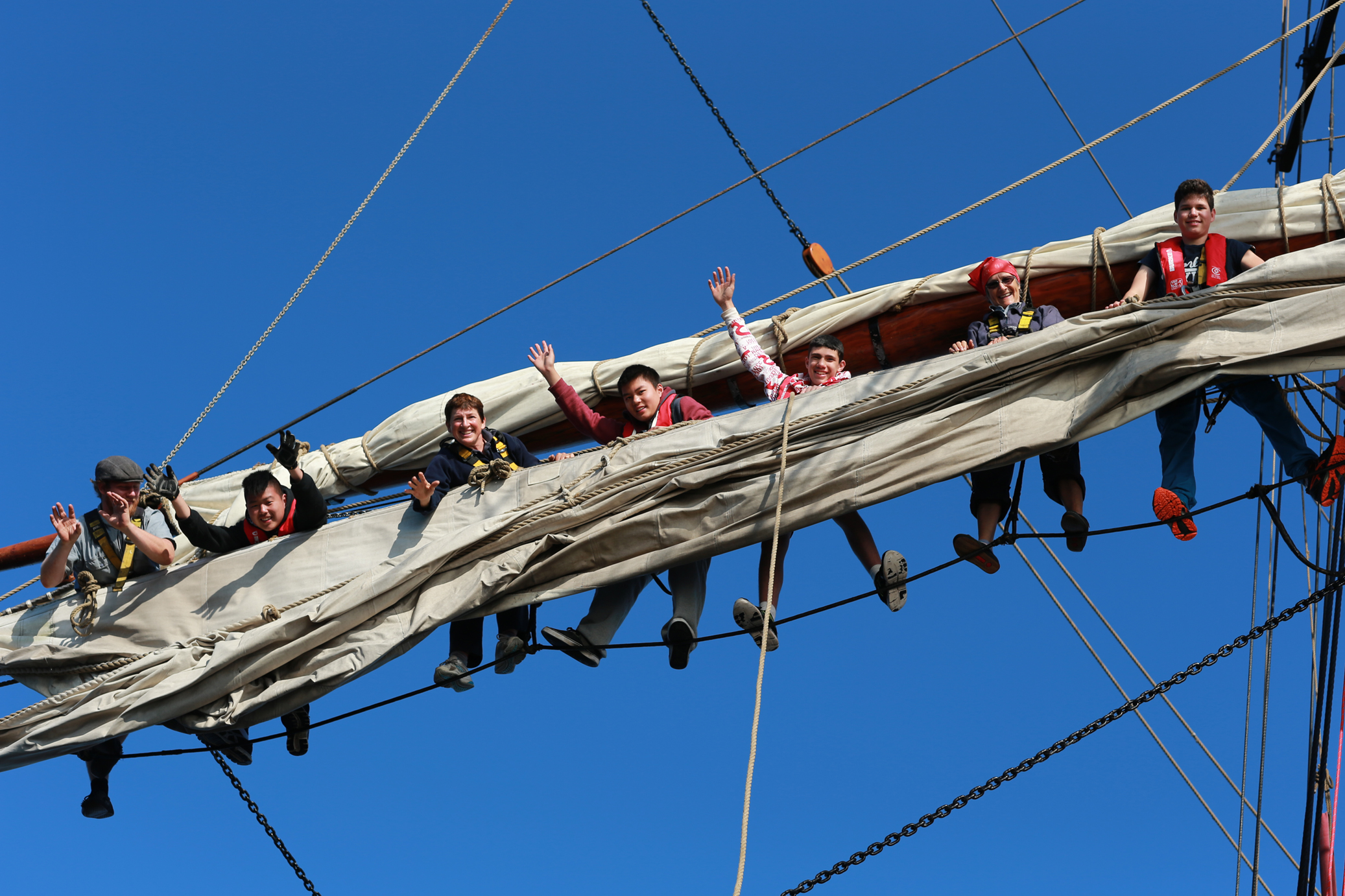There’s nothing like a real adventure to challenge a person’s way of thinking – especially a teenager. The Helmsman Project aims to do just that. It’s a coaching and experiential learning program for Year 9 students located in communities experiencing disadvantage. Through professional coaching, hands-on experiences and community projects, young people learn to see the opportunities available to them and increase their sense of hope, self-regulation, resilience and community-mindedness. Equipped with these life skills, they can make better decisions and reach their full potential. Head of programs Dr Charmaine O’Brien explains: “The program is a combination of adventure or outdoor education and developmental coaching, offered to kids from disadvantaged backgrounds.
“A lot of them are from refugee backgrounds, we work with a lot of girls who are kept at close quarters in their families and communities who are really keen to try new things, to see themselves differently.” The organisation raises the money for the participants so there’s no cost to families, and schools need only provide an on-site teacher and transport to and from the venue. Participants are usually 14-15 years old. Charmaine says there is a wealth of research that shows that adventure education is particularly beneficial at that age as it’s a psychological transitional point for young people. “They’re starting to move from being kids towards being adults. “It’s a really important point in developing your own identity. They like to try new things, take new things on.
It gives them an immediate, concrete experience of doing something that was hard, but they did it.” The developmental coaching adds further value. “We take that experience that they’ve had and extend it so they get more out of it.
We use that experience to help them take a broader perspective on themselves, on others and the world. So they see themselves differently, they see others differently and they see greater potential for themselves, or for resources or opportunities in the world.”They also do a community project.“That’s about helping them develop a bigger perspective on the world. They choose an issue in the community that they think needs addressing and initiate their own project idea around that, then they do that project.”
Dr Michael Cavanagh of Sydney University’s coaching psychology department, had a lot of input into the design and ongoing development of the program, which had a three-year Australia Research Council-funded study examine its impact. But Charmaine says the results can be obvious. Participants report feeling more confident, have increased self-worth and are able to present themselves better. They have a clearer direction, may become more focused on the study, and some say their relationships at home improve. “We help them think in a bigger way. To think about the choices they’re making.
“If you’ve been through a program like ours that helps you understand your value, your purpose, you can see how you can use that to drive your decisions.”
One boy with severe cerebral palsy welcomed the opportunity to be seen by his peers as more than just the kid in the wheelchair. The program is valuable socially too. “A lot of them find it really useful to make friends. They’re really curious about others. Even when they’ve got a nice friendship circle at school, they’re really curious to meet others.
“They learn from their peers, they naturally want to seek as many different interactions as they can.” Charmaine got into coaching about 10 years ago, when it was becoming popular in the leadership space. “I thought that’s how I naturally work with my team.”
So she did a masters degree in coaching psychology and put her experience mentoring young people into practice, volunteering at The Helmsman Project.
The venture eventually led to a paid position. She welcomes the opportunity to continue coaching and develop her learning at the same time. “It’s not easy coaching teenagers, they often don’t give you a lot. They can be very closed. Sometimes, some of them can be challenging. They push your buttons. But in the end, when you’ve done it when you go back and talk to them, that’s when you see how positive it’s been for them. How overtime, those little things that we’ve planted have grown, and that’s really, really rewarding.”

By Ingrid Green

